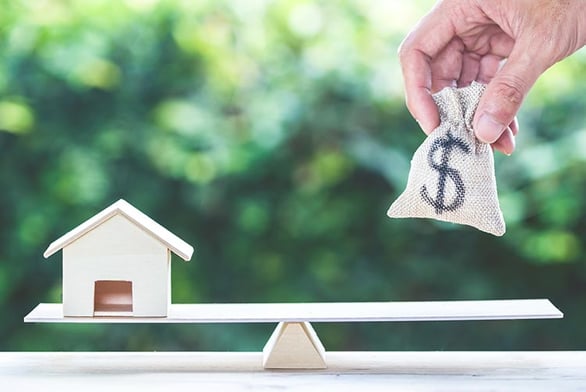
With time, the equity position in an investment property will generally increase. As a result, investors may seek opportunities to make use of the equity in their properties. There are a few ways to do this, and in this article, we’ll go through them.
Reusing Equity
Investment properties may start with some level of equity, which comes from cash put into the property. From there, investors generally try to improve their equity position. There are several ways that equity can improve:
- Add more cash to the investment
- Value of property increases
- Debt decreases
Once enough equity has built up in the property, the investor may pursue ways to utilize it for new opportunities. This is a reuse of equity in the property. The first use of equity was to acquire a loan or other investors. Few banks or investors will want to go in on a property where the sponsor doesn’t have some stake (i.e., equity) in the deal as well.
The second use is to apply the existing equity to acquire another investment property. The investor might once again use debt or other investors to assist in purchasing the property. Using the equity in an existing property doesn’t exclude the ability to get a loan or attract investors.
If the equity in the two properties increases, there may come a point that the investor can use the same technique to acquire a third investment property. But, of course, it will all depend on how leveraged the investor is at that point.
Banks and other investors will still have risk limitations. For example, suppose an investor seems to be getting in over their head. In that case, the investor will have difficulty bringing in more financing, whether that’s additional debt or equity (from investors).
How Do Tenants Improve Equity?
Tenants, as the source of rental property income, help landlords improve their equity. The landlord doesn’t directly pay down the property’s mortgage (at least when possible). Instead, it’s tenants who pay down the mortgage.
As the mortgage balance decreases, equity improves. Improving equity can also increase the landlord’s return on the property.
Some investors may want to carry some debt on their investment properties. However, if an investor has to sink all of their available cash into a property, they won’t be able to take advantage of other opportunities. Using debt as part of the total financing package in purchasing a property leaves the investor with cash and the ability to take advantage of new opportunities.
Debt And Equity Changes Impact On Depreciation
How do changes in debt and equity affect depreciation? Depreciation is based on the value of a property. Debt used to purchase property doesn’t affect depreciation. Likewise, if the debt is simply paid down, increasing equity, the change in equity will also not affect depreciation.
However, if the investor utilizes their equity through a home equity line of credit (HELOC) to make improvements, that will affect depreciation. This is because improvements must be capitalized over time as an expense, which is another way of saying they must be depreciated. In this case, the depreciation expense will likely increase.
Equity can provide the ability to acquire new investment properties. However, it is often a starting point, as additional financing is usually needed. Investors should monitor the amount of debt they are utilizing so they do not over-leverage themselves.
This material is for general information and educational purposes only. Information is based on data gathered from what we believe are reliable sources. It is not guaranteed as to accuracy, does not purport to be complete and is not intended to be used as a primary basis for investment decisions. It should also not be construed as advice meeting the particular investment needs of any investor. All real estate investments have the potential to lose value during the life of the investment. All financed real estate investments have the potential for foreclosure. Costs associated with a real estate transaction may impact investor's returns and may outweigh the tax benefits. The income stream and depreciation schedule for any investment property may affect the property owner's income bracket and/or tax status. An unfavorable tax ruling may cancel deferral of capital gains and result in immediate tax liabilities.



